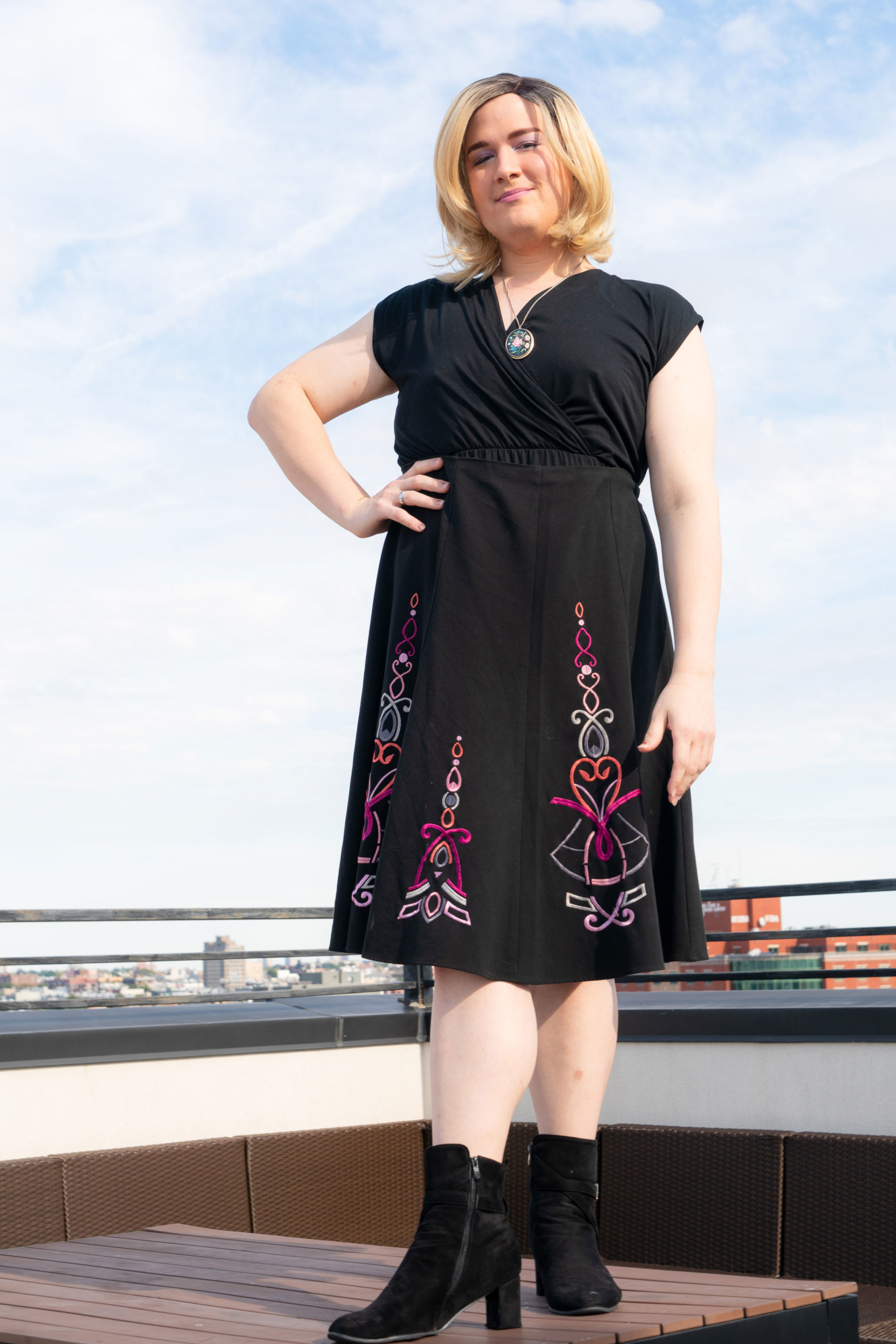(Photo above by Anjelica Jardiel)
Kaydence Reed proves that loving yourself can change the world.
I grew up in a strict religious household on a farm in Texas, where I had a difficult time reconciling my sexual identity with my upbringing. I wanted to fit in, but being gay made that hard to do. When I came out to my family at 13 years old, my dad and stepmom kicked me out of the house. I packed up and moved to Austin, Texas to live with my mom.
When I started high school, I met my best friend who was a Buddhist and started inviting me to Buddhist meetings.
But a few months into the school year, I lost my sister in a car accident. My constant thoughts were: Why me? Why is my sister gone? Why doesn’t my dad love me for who I am? I felt like I was destined to experience tragedies and didn’t belong.
I moved to New York City and went to my first Pride parade. I stayed for all of 30 minutes. Gay marriage rights had just been won, and all I could think about was how I was an imposter who didn’t belong. I wasn’t skinny or pretty enough, and I felt isolated with no friends of my own.
Nine years after first hearing about Buddhism, I finally decided to attend an introduction meeting at the SGI center in New York.
At the meeting, the people were friendly and shared inspiring experiences, but I was hesitant to start my own Buddhist practice because it seemed too good to be true. But I noticed after attending the meetings and chanting Nam-myoho-renge-kyo on my own, I could feel a difference and decided to become a member to learn more.
My local SGI-USA neighborhood meetings became an incredible source of support. Each time something difficult would come up, the members gave me the confidence to use my practice to break through. I felt safe, like I was coming home.
By the time the Pride parade rolled around the next year, I was no longer a scared and lost boy.
I was a courageous Buddha with a community and a sense of belonging.
For so long, I used my problems as an excuse for not taking responsibility for my life. But as I chanted, I began to see the role I played in each situation. I decided to take the first step to communicate with my family more regularly, and meet them where they were, without judgment.
Even though I still had unresolved emotions toward my father, I started to consistently reach out. Our conversations were brief and mostly about the weather, but these were important, especially because each call was a step forward in solidifying our relationship.
My mother and I have always been close. She was the center of my universe, and we spoke almost every day. But for years she had health challenges, including depression and addiction to prescription drugs. When her health worsened, I felt afraid and unsure of how to support her.
I learned from my Buddhist practice that instead of trying to “save” my mom, I needed to simply love her just as she was, in the same way she did for me when I came out to her as gay.
My biggest lesson was learning that my happiness was not dependent on my mother, but that by me becoming happy, I could support her in becoming happy.
In early 2017, my mom had a series of strokes, leaving her immobile and unable to speak. She went into hospice, and in March 2017, my mom passed away. No words can describe the pain I felt. But with my chanting and the support of fellow Buddhists, I had the confidence to manage her medical decisions and final arrangements after she passed. Losing my mother also caused me to reevaluate my own gender identity. A little more than a year later, I began living my life as a transgender woman.
I felt like I was back at square one, filled with self-loathing. I had finally gotten comfortable with my identity as a gay man. My safety net had been pulled out from under me. I felt ugly and broken with no desire to be a chubby, 6-foot-tall balding woman.

Photo by Anjelica Jardiel
The next day, I reached out to my SGI district members for support. Although I was anxious about telling my co-workers, friends and family that I was transgender, I felt no worries about telling the members in my neighborhood discussion group because of the safety and security I felt in the SGI community. In fact, I just casually shared the news with them, and although they may not have understood the terminology or process of transitioning, at all times, I felt their heart and desire for me to be happy.
In the transgender community, the question, “Who have you lost?” is quite common (after coming out to family and friends). As I told each of my loved ones, I was met with warmth and kind words. Finally, the day came when the only person remaining was my dad. I was prepared for the worst-case scenario.
When I told him, he responded by saying that I would always be his child, and he would love me no matter what. He encouraged me to please make sure this was the right decision for my life.
This proved the power of my Buddhist practice in the biggest way; it was truly remarkable that I was able to build a relationship based on mutual respect that was strong enough for my father to accept his transgender child. In hindsight, I can see that he was simply reflecting the self-respect I had developed through my practice.
I now know that I chose these specific challenges, so I could be an advocate for all my trans brothers and sisters, especially the big girls!
